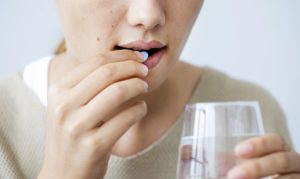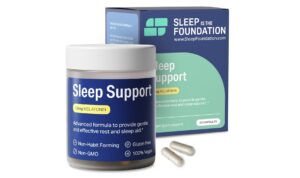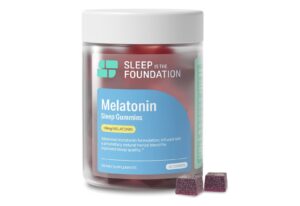What Happens if You Take Melatonin With Alcohol?
Melatonin is a hormone produced by the human body that plays a role in controlling your sleep schedule . Melatonin is also available as a dietary supplement, and melatonin supplement usage by U.S. adults has grown more than fivefold in recent decades.
Although experts generally consider melatonin supplements to be safe for short-term use by adults , there are potential risks that may come when taking melatonin long-term, especially when taken alongside other substances, including alcohol .
Why You Shouldn’t Mix Melatonin and Alcohol
Experts recommend against drinking alcohol when taking melatonin . In fact, melatonin supplement labels may soon state that melatonin shouldn’t be taken with alcohol. The Council for Responsible Nutrition (CRN), a dietary supplement trade association, created a guideline suggesting this label change in April of 2024.
Risks of Mixing Melatonin and Alcohol
Researchers haven’t widely studied the potential interactions between melatonin supplements and alcohol. However, alcohol and melatonin both slow down activity in the central nervous system, so it’s logical to presume that taking them together may be unsafe.
Some experts suggest that because both melatonin and alcohol can increase drowsiness, combining them can cause excessive tiredness, worsen breathing during sleep, or make it difficult to wake up .
In rare cases, certain people might be more sensitive to the effects of mixing alcohol and melatonin . A case study published in 2002 documented side effects a person experienced after consuming both melatonin and alcohol in the same evening. His symptoms included a rapid heartbeat, feelings of weakness, mild shaking in the arms and legs, flushed skin, sweating, dizziness, headache, disorientation, and hallucinations.
Melatonin, Alcohol, and Sleep Apnea
On its own, consuming alcohol has been found to worsen symptoms of obstructive sleep apnea . When combined with melatonin supplements, alcohol may make it even harder to breathe during sleep . If you have sleep apnea or suspect you may have sleep apnea, speak with your doctor before drinking alcohol or taking melatonin supplements.
In obstructive sleep apnea, a person’s breathing stops or slows down excessively during sleep because their airway becomes temporarily blocked . The blockage occurs when muscles in the airway relax and tissues in the throat collapse onto one another. Alcohol is a central nervous system depressant, meaning it may worsen obstructive sleep apnea by further relaxing these muscles. In the long term, regularly drinking alcohol can also contribute to weight gain, which tends to worsen obstructive sleep apnea.
Why Alcohol Is Bad for Sleep
Many people consume alcohol believing it helps them sleep, but in actuality, alcohol can cause or worsen sleep problems. Drinking alcohol can lead to insomnia, restless sleep, short sleep, and excessive tiredness during the day. People with alcohol use disorder are much more likely to experience insomnia compared to the general public.
Alcohol appears to disrupt sleep in multiple ways. First, alcohol alters a person’s sleep cycle, disrupting the delicate balance of time spent in different sleep stages and causing nighttime awakenings. Second, alcohol also interferes with a person’s circadian rhythm, a mechanism that influences when a person feels tired and when they feel awake. Finally, alcohol can disrupt sleep by increasing snoring and lapses in breathing associated with sleep apnea.
What Else Shouldn’t You Mix Melatonin With?
Most medications haven’t been studied to determine how they may interact with melatonin . That said, researchers believe that the following types of medications and drugs may interact with melatonin:
- Antidepressants, including selective serotonin reuptake inhibitors (SSRIs)
- Blood pressure medications, including calcium channel blockers
- Blood thinners
- Sedatives
- Caffeine
If you take any drugs or medications, particularly the ones on this list, talk to your doctor before beginning melatonin supplements.
Is Melatonin Safe?
Research suggests that taking melatonin for the short-term is safe for most adults. There isn’t enough research to say whether long-term use of melatonin is safe .
Experts have concerns about the safety of taking high doses of melatonin, a practice that is becoming more common. Doses over 5 mg are considered “high”. Experts suggest that doses 1 mg or smaller may be as effective as higher doses for people taking melatonin to help them fall asleep. Since melatonin supplements aren’t regulated, the melatonin content may vary from bottle to bottle and pill to pill, especially when taken in gummy form.
Studies that have looked at melatonin side effects have largely found these to be mild or short-lived, although more research is needed . Known side effects of melatonin include nightmares, vivid dreams, daytime sleepiness, dizziness, headaches, low mood, irritation, nausea, and stomach pain.
There is a small risk that using melatonin may put extra strain on the liver, particularly for people who already experience impaired liver function, such as those with alcohol use disorder .
How to Properly Take Melatonin Supplements
If you are considering taking melatonin supplements to help you fall asleep, speak with your doctor first. They can make sure that melatonin supplements are a good choice for you, given your symptoms, illnesses, or any medications you’re on.
If your doctor says that taking melatonin is acceptable for you, they may recommend starting with a 1 mg or smaller dose a few hours before your desired bedtime. Get in touch with your doctor immediately if you experience any side effects. Note that melatonin has been found to help people fall asleep but not to help people stay asleep throughout the night.
When to See a Doctor
If you have ongoing sleep problems or suspect a sleep disorder, see your doctor. They can ask questions about your symptoms and history to help determine if you need further testing.
Also, see a doctor if you consume alcohol regularly and feel like you cannot stop or if it is negatively impacting your life, including your sleep. Your doctor can assess if you have an alcohol use disorder and determine if you may benefit from treatment .
References
15 Sources
-
The National Center for Complementary and Integrative Health. (2024, May). Melatonin: What You Need To Know.
https://www.nccih.nih.gov/health/melatonin-what-you-need-to-know -
National Institutes of Health. (2022, March 1). Use of melatonin supplements rising among adults. U.S. Department of Health & Human Services.
https://www.nih.gov/news-events/nih-research-matters/use-melatonin-supplements-rising-among-adults -
Council for Responsible Nutrition. (2024, April 15). CRN Adopts New Guidelines for Melatonin Supplements to Promote Responsible Usage [Council for Responsible Nutrition].
https://www.crnusa.org/newsroom/crn-adopts-new-guidelines-melatonin-supplements-promote-responsible-usage -
Council for Responsible Nutrition. (2024, March 28). Formulation, labeling, and packaging of melatonin- containing dietary supplements for sleep support [Council for Responsible Nutrition].
https://www.crnusa.org/sites/default/files/weekly/24-04-18/Voluntary-Guidelines_Melatonin_Approved-28March2024.pdf -
Savage, R., Zafar, N., Yohannan, S., & Miller, J. (2024, February 9). Melatonin. StatPearls.
https://www.ncbi.nlm.nih.gov/books/NBK534823/ -
Schwab, R. J. (2024, June). Approach to the patient with a sleep or wakefulness disorder. Merck Manual Professional Version.
https://www.merckmanuals.com/professional/neurologic-disorders/sleep-and-wakefulness-disorders/approach-to-the-patient-with-a-sleep-or-wakefulness-disorder -
Anand, J.S. & Chodorowski, Z. & Waldman, Wojciech & Ciechanowicz, R. (2002). An interaction of melatonin with alcohol: A case study. 54. 537-538.
https://www.researchgate.net/publication/291450048_An_interaction_of_melatonin_with_alcohol_A_case_study -
Malhotra, A., & Kundel, V. (2024, December 17). Obstructive sleep apnea: Overview of management in adults. In N. Collop (Ed.). UpToDate.
https://www.uptodate.com/contents/obstructive-sleep-apnea-overview-of-management-in-adults -
He S, Hasler BP, Chakravorty S. Alcohol and sleep-related problems. Curr Opin Psychol. 2019 Dec;30:117-122. doi: 10.1016/j.copsyc.2019.03.007. Epub 2019 Apr 19.
https://pubmed.ncbi.nlm.nih.gov/31128400/ -
A.D.A.M. Medical Encyclopedia. (2023, January 9). Obstructive sleep apnea – adults. MedlinePlus.
https://medlineplus.gov/ency/article/000811.htm -
Tuft, C., Matar, E., Menczel Schrire, Z., Grunstein, R. R., Yee, B. J., & Hoyos, C. M. (2023). Current Insights into the Risks of Using Melatonin as a Treatment for Sleep Disorders in Older Adults. Clinical interventions in aging, 18, 49–59.
https://pubmed.ncbi.nlm.nih.gov/36660543/ -
Neubauer, D. (2024, November 12). Pharmacotherapy for insomnia in adults. UpToDate
https://www.uptodate.com/contents/pharmacotherapy-for-insomnia-in-adults -
Besag, F. M. C., Vasey, M. J., Lao, K. S. J., & Wong, I. C. K. (2019). Adverse Events Associated with Melatonin for the Treatment of Primary or Secondary Sleep Disorders: A Systematic Review. CNS drugs, 33(12), 1167–1186.
https://pubmed.ncbi.nlm.nih.gov/31722088/ -
Jackson, W. (2023, July). Alcohol-Related Liver Disease. MSD Manual Consumer Version.
https://www.msdmanuals.com/home/liver-and-gallbladder-disorders/alcohol-related-liver-disease/alcohol-related-liver-disease -
Holt, S. R. (2024, September 12). Alcohol use disorder: Treatment overview. Saxon, A. J. (Ed.). UpToDate.
https://www.uptodate.com/contents/alcohol-use-disorder-treatment-overview










